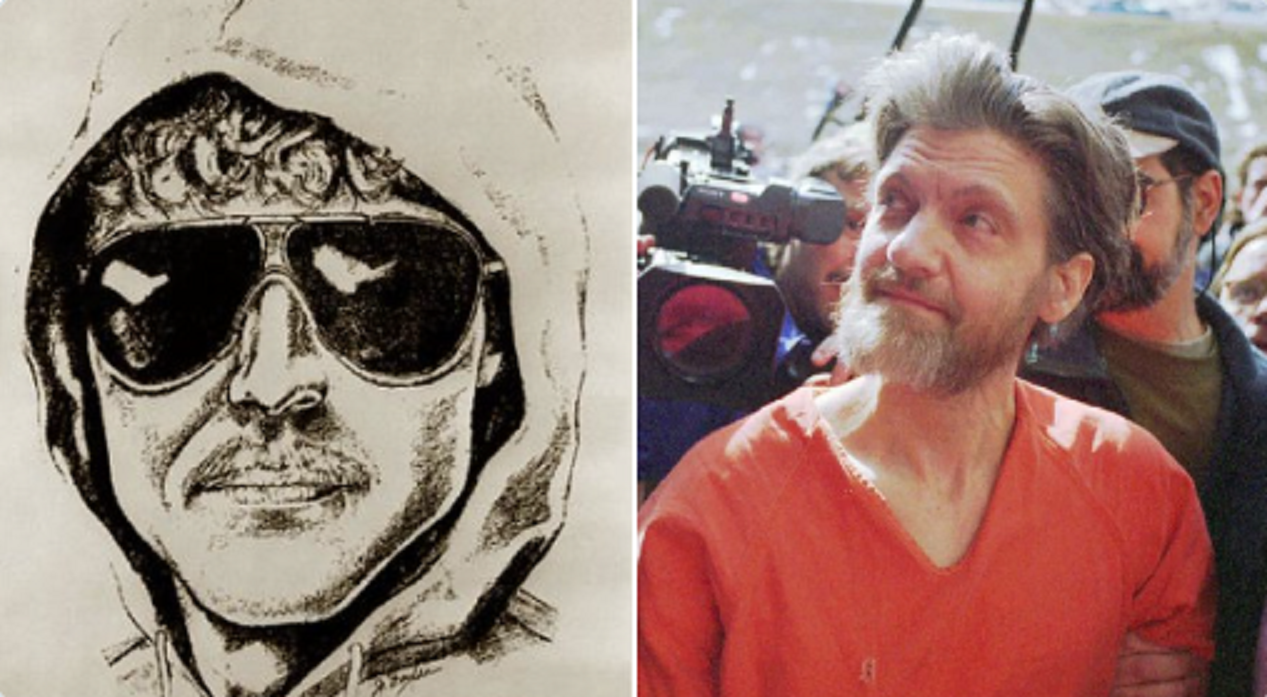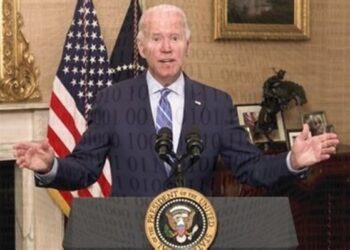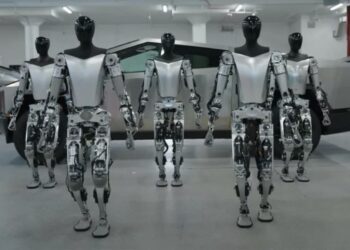
Uncle Ted is dead. After rotting in prison for twenty-seven years, guards found the Luddite icon unresponsive in his cell. Sources claim he committed suicide. Social media was immediately flooded with snarky memes and pixelated memorials—including a post on my own account—which is indicative of the state of affairs we find ourselves in. As much as it pains me to agree with Elon Musk, he’s on point about one thing—we are already cyborgs.
Musk is right. And so was Ted.
Ironically, I first encountered Kaczynski’s Unabomber Manifesto online in 1997, two years after it had been published in the newspapers. This was back in the days of hulking desktop computers and primitive HTML web pages. I still remember the headache-inducing yellow text on a black background.
Using spare prose and robotic logic, Ted issued an ominous warning about a mechanical prison that was enveloping the planet. "As society and the problems that face it become more and more complex and machines become more and more intelligent, people will let machines make more of their decisions for them, simply because machine-made decisions will bring better results than man-made ones,” he stated flatly, as if giving a clinical diagnosis. "At that stage the machines will be in effective control.”
The idea chilled me to the bone, and the image of a digitized human herd has never left me. Twenty-eight years later, the relentless march of progress appears to be an exponential curve from bar codes to smartphones to digital implants. Just ask Musk if you don’t believe me. However, the Unabomber Manifesto isn’t just a diatribe against technology. It is a condemnation of civilization itself. Neuralink implants are just additional wiring.
The Emergent Machine
To me, the most disturbing element of the manifesto is Ted’s sense of inevitability. It isn’t that any one person or cabal is creating a techno-prison on purpose. Not necessarily. Rather, it’s simply in the nature of technology to expand outward and destroy the natural world, and within society itself, to project power inward and crush human freedom. The various inventors, investors, retailers, and operators of these devices are only doing what humans do—pursuing pleasure and stoking their own egos. Our digital prison is just an emergent property of its parts, like a murmuration of starlings flying into the blades of a wind turbine.
The inevitable result is the degradation of human nature, Ted argued, followed by the destruction of the natural environment, which will lead to the collapse of the entire system. Because most humans will have become utterly dependent on the technological system, that collapse would mean mass death and perhaps the extinction of the human race. Even if we somehow manage to keep the Machine rolling along for centuries, humanity will be nothing more than a mass of drug-addled, genetically engineered, mentally enfeebled power-slaves.
Ted saw only one way out. We must destroy the technological system before it destroys us. Of course, that would mean most of the people presently dependent on the system would die, anyway, but at least a few bands of primitive yokels would survive to carry humanity’s torch and enjoy Mother Nature in peace. It was an appealing argument to my anarchic and somewhat paranoid teenage mind. When you’re amped up on testosterone, TV, and fizzy drinks, anything seems possible.
Of course, there’s the nagging issue of the bombing campaign Ted used to extort the Washington Post and the San Francisco Chronicle into publishing his incendiary tract. "In order to get our message before the public with some chance of making a lasting impression,” he wrote in his isolated cabin, "we’ve had to kill people.” It should go without saying that agreeing with Ted’s argument is not an endorsement of his terrorism. Nor can one deny that his violent pleas for attention worked, even if it ultimately provided more ammo to the authoritarian system he was trying to destroy.
Weighing the "Inevitable”
Despite his grim pessimism, Kaczynski managed to have a profound influence on tech gurus. His manifesto was discussed at length in Ray Kurzweil’s first hit book, The Age of Spiritual Machines, if only to be dismissed. "Although [Kaczynski] makes a compelling case for the dangers and damages that have accompanied industrialization, his proposed vision is neither compelling nor feasible,” Kurzweil concluded. "After all, there is too little nature left to return to, and there are too many human beings. For better or worse, we’re stuck with technology.”
There’s nowhere to go but forward. With a shrug and a chuckle, Kurzweil goes on to predict that technology will keep advancing exponentially until we hit the Singularity. Artificial intelligence will gain consciousness and surpass human beings on every level, forcing us to merge with machines by way of brain implants and injectable nanobots. Worst of all, he’s quite pleased about the prospect.
The tech heavyweight Kevin Kelly quotes long tracts from Ted’s manifesto in his masterful book What Technology Wants. In fact, he dedicates an entire chapter to the subject entitled "The Unabomber Was Right.” As co-founder of Wired magazine, Kelly has been immersed in techno-culture as much as any person alive. "I was utterly dismayed,” he wrote, "to discover that one of the most astute analyses of the technium was written by a mentally ill mass murderer and terrorist. What to do?”
As is his way, Kelly weighs Kaczynski’s arguments carefully, giving credit where credit is due. In the end, though, Kelly concludes that technological civilization is simply what most humans want, even if we gripe about it. He holds out hope that the upsides will outweigh the negatives. And if they don’t, well, the subtext is there’s nothing to do about it. We might as well enjoy it while it lasts.
If there’s one thing all three men agree on, it’s the Myth of Inevitability. For Kurzweil and Kelly, technological advancement is simply "inevitable.” For Kaczynski, the ultimate inevitability is doom. Every plane, train, power station, and smartphone is a ticking time bomb, not unlike the crosswired neurons in Ted’s head. His suicide may have defused that bomb, but his ideas will endure on servers and continue to spread across the screens that he so detested.
Evolution’s End
Kaczynski’s ideas about technology unfolded according to a rigid logic, not unlike a computer algorithm. His manifesto might as well have been written in programming language as a series of if/then commands. If technology advances, then human freedom suffers. If human freedom suffers, then technology must be destroyed. This was the foundational code behind Ted’s beef with technology.
In order to function efficiently, a technological system has to regulate human behavior down to the slightest detail. Once the system has achieved a high level of sophistication, any semblance of human freedom is merely an illusion. So it is that the Unabomber Manifesto is a bestseller on Amazon, and distributed for free on various websites, even as corporate and government algorithms tag and track each recipient as if they were sheep in a factory farm. If you see something, say something.
One wonders if Ted was following the AI news cycle before his plug was pulled. Things appear to be unfolding much like he predicted, at least according to the hype. AlphaFold is modeling complex proteins in mere moments. ChatGPT is writing students’ papers for them. Midjourney is creating derivative, but commercially viable artwork at the click of a button. The Department of Defense is amassing deadly drone swarms.
In 1993, the sci-fi writer Vernor Vinge gave an ominous lecture at a NASA space engineering conference. Long before Kurzweil adopted the term, Vinge predicted a technological singularity that would change the world forever. "Within thirty years, we will have the technological means to create superhuman intelligence,” he wrote. "Shortly thereafter, the human era will be ended.” Well, here we are in 2023. As if on cue, every tech headline seems tailored to convince us that we and our posterity will soon be the organic detritus of the Machine’s evolution.
Ted’s manifesto, published in 1995, put forward a similar prediction. "Let us postulate that the computer scientists succeed in developing intelligent machines that can do all things better than human beings can do them,” he wrote. "If the machines are permitted to make all their own decisions, we can’t make any conjectures as to the results, because it is impossible to guess how such machines might behave. We only point out that the fate of the human race would be at the mercy of the machines.”
As you read this on your screen, tracked by surveillance algorithms and enticed to click on the next distraction, it’s worth reflecting on Ted’s dark vision. It drove him out of his mind, but we don’t have to follow him. Nor do we have to follow every dictate issued by the Machine.
Personally, I don’t believe any future is “inevitable.” We always have a choice about which direction to go. If we don’t start making hard decisions soon, though, all of those choices will be made for us.
R.I.P. Uncle Ted





Kaczynski was too smart for his own good. What he learned about the real world brought on a sever case of PTSD. His illness made him think that violence could change the direction of the world. He should have realized that technology could make way for innovation to save the world. Change is always dynamic. There are just too many variables and when you think you have it all figured out, a mysterious cataclysmic event resets everything.